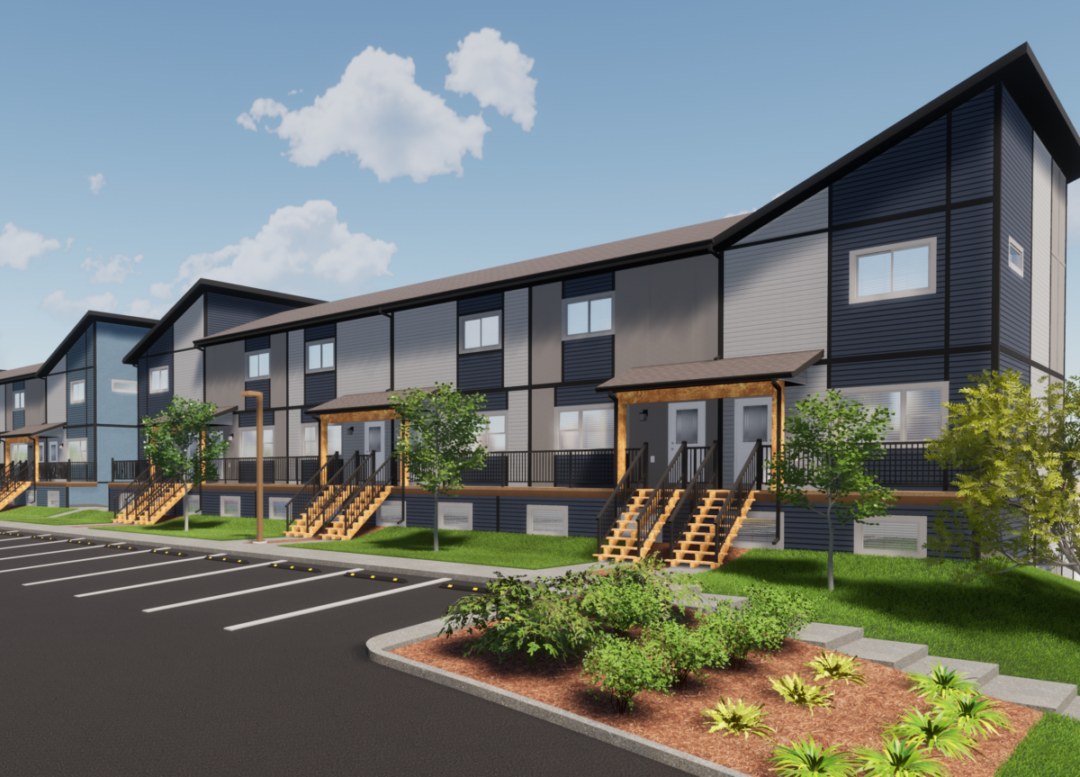It’s hard enough to find affordable housing when you blend in, but for people living with mental health issues, the struggle can be overwhelming. The National Affordable Housing Corporation is hoping that its Aspen Heights project will become an inspirational model for supportive housing.
Finding affordable housing in Saskatchewan is a daunting task, but the stakes are even higher when you are dealing with mental health issues. According to Stacie Beever, chief operating officer at the National Affordable Housing Corporation, the opportunities for independent living are limited.
“We have been working with the Canadian Mental Health Association – Saskatoon to understand some of these options, we have found that it’s not dissimilar to what we have seen for housing other tenant types that require some living supports—the options are extremely limited. And if somebody doesn’t fit within a certain box, they fall through the gap.”
Saskatchewan is in dire need of addressing systemic support gaps for people living with mental health concerns. The only supportive housing models available to them are either group homes or two-year transitional housing models.
Living in a group home means there are rules and structures, and the individual isn’t fully independent. Those who choose transitional housing, however, run the risk of being stuck in cycles of unstable housing.
Another hurdle is that group housing models usually pair residents with other tenants.
“It’s hard living with roommates. And that’s a fact whether you have a disability, a mental health challenge or not,” says Beever. Throw in a few people with “mood disorders, sleep pattern needs, anxiety, and more” and no one is happy.
Another concern: a lot of housing units available to people struggling with mental health issues are concentrated in areas that aren’t always safe, which makes them more prone to victimization.
“So, we are trying to create housing options that are safe, in every community, rather than concentrated in areas where there may already be a high level of affordable housing.”
By partnering with the private sector, government and other non-profits, the NAHC has helped build over 900 affordable homes in Saskatoon in the last decade.
Upgrading old housing models
When people lack options, they often end up in dangerous living conditions, like renting single rooms at the infamous City Centre Inn and Suites, also known as Northwoods, that was forcibly closed by the city last summer.
About 150 residents—most receiving social assistance, and many struggling with mental-health issues—had lived in vermin- and mould-infested units. In a recent article covering Saskatoon’s hidden housing crisis, a veteran fire inspector said she “has never seen ‘deplorable’ conditions on such a scale.”
Yet, to some, it was better than the alternative: living on the street.
We already know that people with mental health issues are more susceptible to homelessness. Roughly 30-to-35% of those experiencing homelessness have mental illnesses—for women, the number rises to 75%.
And that is why housing for this demographic is more urgent than ever.
Situated in Saskatoon’s Aspen Ridge community, Aspen Heights is one way the NAHC is tackling this challenge with an eye to improving on past mental health housing models through active community partnerships.
“Aspen Heights [is] moving towards construction, with government support and financing already in place,” says Beever about the 56-unit townhouse development that will comprise eight units dedicated to housing ten lower-income tenants with mental health disorders and overlapping challenges.
With shovels to hit the ground this fall, the NAHC has partnered with Canadian Mental Health Association – Saskatoon, Inclusion Saskatchewan and Real Life Rentals to offer support services. And they already have a model for success: Willowview Heights.
A 72-unit mixed housing complex, it is home to nine tenants with intellectual disabilities and overlapping challenges, most of whom struggle with mental health issues. What has been most surprising and heart-warming, according to Beever, is the communal spirit that in turn creates a sense of belonging.
“We have found that the sense of community at Willowview Heights has kind of developed in and of itself,” Beever says. “A natural community happened: you start talking with the residents and you can tell it’s positive, it’s uplifting, and you know you’re part of something bigger. So, we expect a similar thing will happen at Aspen Heights almost holistically [although we] will encourage it where we can.”
A blueprint for success
The Community Housing Transformation Centre has awarded $150,000 from its Sector Transformation Fund–Local Projects fund for the capacity-building side of the project.
“[The Centre’s] support for this project makes it possible to pursue the visionwe have for working with and successfully housing people living with mental health challenges,” Beever says.
The grant also provides the opportunity to properly train staff about mental health and mental illness issues, the signs of crisis, how to defuse difficult situations, and suicide prevention.
Since the main goal of this project is to develop and share a new model for independent and affordable supportive housing for people living with mental illness, the NAHC is excited about the potential for a new blueprint. Beever is positive that Aspen Heights will elicit interest within the province and beyond.
“We’re really hoping to expand from it ourselves — [and] that other groups will look to us for knowledge-sharing and lessons learned. If they need some guidance, if they have some hard questions, they know that they would be able to contact us to ask us for feedback or suggestions.”



